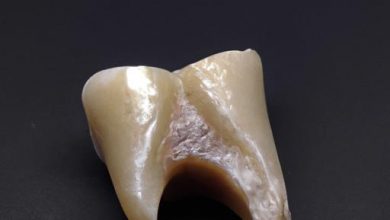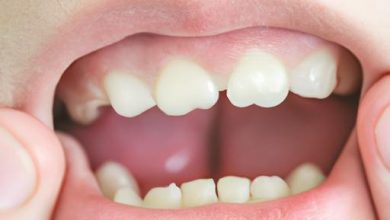How Does Salt Keep Dental Problems Away?
Introduction

Oral hygiene is an essential aspect of maintaining overall health. Poor oral hygiene can lead to a range of dental problems, including gum disease, tooth decay, and bad breath. While brushing and flossing are essential for maintaining good oral hygiene, adding salt to your oral care routine can offer additional benefits.
Salt is a natural antiseptic that has been used for centuries to treat various ailments, including dental problems. This article will explore how salt keeps dental problems at bay and the benefits of incorporating salt into your oral care routine.
Salt as a natural antiseptic
Salt is a natural antiseptic that has powerful antibacterial properties. When applied to the gums and teeth, salt can help kill bacteria and prevent the development of gum disease and tooth decay.
The antibacterial properties of salt
Salt is a natural antibacterial agent that can help kill harmful bacteria in the mouth. Bacteria thrive in warm, moist environments, making the mouth the perfect breeding ground for bacteria. When bacteria accumulate in the mouth, they can cause a range of dental problems, including gum disease and tooth decay.
Salt can help kill bacteria by dehydrating them. When salt is applied to the gums and teeth, it draws out moisture from the bacteria, causing them to shrink and die. This process can help prevent the development of gum disease and tooth decay.
How salt prevents gum disease and tooth decay
Gum disease and tooth decay are caused by the buildup of plaque and bacteria in the mouth. Plaque is a sticky film that forms on the teeth and gums when bacteria in the mouth combine with food particles. Over time, plaque can harden and turn into tartar, which can lead to gum disease and tooth decay.
Salt can help prevent the buildup of plaque and bacteria in the mouth. When salt is applied to the teeth and gums, it can help break down plaque and remove it from the teeth. This process can help prevent the development of gum disease and tooth decay.
In addition to its antibacterial properties, salt also has abrasive properties that can help scrub away plaque and stains on the teeth. Salt can also help strengthen the teeth by providing essential minerals that are necessary for healthy teeth and gums.
Salt as an abrasive agent
Salt is not only a natural antiseptic but also a natural abrasive agent that can help scrub away plaque and stains on the teeth. The abrasive properties of salt can help remove surface stains on the teeth, making them appear whiter and brighter.
How salt scrubs away plaque and stains
When used as a toothpaste, salt can help break down plaque and remove it from the teeth. The abrasive properties of salt can help scrub away stains and plaque that have accumulated on the teeth, leaving them clean and smooth.
Salt can also help remove surface stains on the teeth caused by coffee, tea, or tobacco. When used regularly, salt can help keep teeth looking clean and bright.
The benefits of using salt as a natural toothpaste
Using salt as a natural toothpaste has several benefits. Unlike commercial toothpaste, which can contain harsh chemicals and additives, salt is a natural and safe alternative.
Salt is also inexpensive and easy to find, making it an accessible alternative to commercial toothpaste. Using salt as a natural toothpaste can help promote good oral health and prevent dental problems, including gum disease and tooth decay.
Salt as a source of minerals
Salt is not only a natural antiseptic and abrasive agent but also a source of essential minerals that are necessary for healthy teeth and gums. Minerals, such as calcium, fluoride, and magnesium, are essential for maintaining strong and healthy teeth.
The minerals found in salt and their role in oral health
Salt contains several essential minerals that are necessary for healthy teeth and gums, including calcium, fluoride, and magnesium.
Calcium is necessary for maintaining strong teeth and bones. Fluoride is essential for preventing tooth decay by strengthening tooth enamel. Magnesium is necessary for maintaining healthy gums and preventing gum disease.
How salt helps strengthen teeth and prevent mineral deficiencies
Using salt as part of your oral care routine can help prevent mineral deficiencies and strengthen teeth. When used as a toothpaste, salt can provide essential minerals that are necessary for maintaining healthy teeth and gums.
In addition to using salt as a toothpaste, incorporating salt into your diet can also help prevent mineral deficiencies and promote good oral health. Adding a pinch of salt to your meals can help provide essential minerals that are necessary for maintaining healthy teeth and gums.
In conclusion, salt is a natural and safe alternative to commercial toothpaste that can help promote good oral health and prevent dental problems. Incorporating salt into your oral care routine can help kill bacteria, prevent gum disease and tooth decay, remove surface stains, and provide essential minerals that are necessary for maintaining healthy teeth and gums. At Zahnweiss Info, we encourage you to consider incorporating salt into your oral care routine for strong, healthy teeth and gums.
How to use salt for oral care
While salt can offer many benefits for dental health, it is essential to use it correctly to avoid damaging the teeth and gums. Here are some different ways to incorporate salt into your oral care routine:
-
Saltwater rinse: Mix a teaspoon of salt with warm water and swish it around in your mouth for 30 seconds before spitting it out. This can help kill bacteria and freshen your breath.
-
Salt toothpaste: Mix a teaspoon of salt with your regular toothpaste and brush your teeth as usual. This can help scrub away plaque and stains on the teeth.
-
Salt and baking soda mixture: Mix a teaspoon of salt with a teaspoon of baking soda and brush your teeth with the mixture. This can help whiten your teeth and freshen your breath.
-
Saltwater and hydrogen peroxide rinse: Mix a teaspoon of salt with hydrogen peroxide and warm water and swish it around in your mouth for 30 seconds before spitting it out. This can help kill bacteria and whiten your teeth.
Precautions to take when using salt for oral care
While salt can offer many benefits for dental health, it is important to take precautions when using it for oral care. Here are some precautions to take when using salt for oral care:
-
Use salt in moderation: While salt can offer many benefits for dental health, excessive use can lead to damage to the teeth and gums. Use salt in moderation to avoid any adverse effects.
-
Use the right type of salt: Not all salt is the same. When using salt for oral care, use sea salt or Himalayan salt, which are free from additives and chemicals.
-
Rinse your mouth thoroughly: After using salt for oral care, rinse your mouth thoroughly with water to remove any salt residue.
-
Consult a dentist: If you have any dental problems or concerns, consult a dentist before using salt for oral care.
Conclusion
In conclusion, incorporating salt into your oral care routine can offer many benefits for dental health. Salt is a natural antiseptic that can help kill harmful bacteria in the mouth and prevent the development of gum disease and tooth decay. It is essential to use salt correctly to avoid any adverse effects. By using salt in moderation and taking the necessary precautions, you can enjoy the benefits of salt for dental health. At Zahnweiss Info, we encourage our readers to prioritize their oral hygiene and consider incorporating salt into their oral care routine to maintain healthy teeth and gums.




